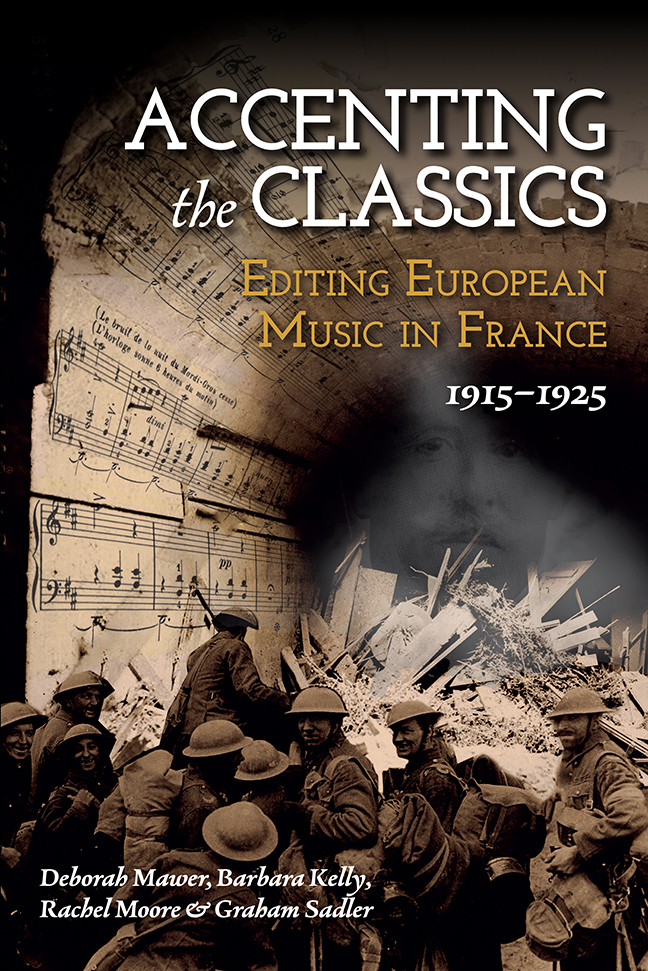Book contents
- Frontmatter
- Contents
- List of Figures
- List of Tables
- Notes on Co-authors
- Acknowledgements
- List of Abbreviations
- Note on the Text
- Introduction
- Part I Durand and His Édition Classique
- Part II Composer–Editor Case Studies
- Part III Beyond Editing: Pedagogy, Performance, Composition
- Afterword
- Select Bibliography
- Index
1 - The Historical Evolution of the Édition Classique
Published online by Cambridge University Press: 10 January 2024
- Frontmatter
- Contents
- List of Figures
- List of Tables
- Notes on Co-authors
- Acknowledgements
- List of Abbreviations
- Note on the Text
- Introduction
- Part I Durand and His Édition Classique
- Part II Composer–Editor Case Studies
- Part III Beyond Editing: Pedagogy, Performance, Composition
- Afterword
- Select Bibliography
- Index
Summary
The correspondence of Jacques Durand and his colleagues from the period 1914– 1918 is, as we might expect, shot through with references to the Great War. Particularly graphic are Durand's descriptions of his first-hand experience of the bombardment of Paris in the final year of the conflict:
I am writing to you in the middle of an alert! At nine o’clock last night, we had to go down to the cellar; forty minutes later, the bells sounded […] and we were able to go to bed. But at six o’clock in the morning, loud detonations were heard, and around half-past eight, there was a new alert, which is still going on. German fighters flying over our lines at great altitude arrived above Paris and dropped bombs. Like us, all the staff in the shop spent the morning in the cellars, so I went to the office at two o’clock and gave them the time off until Monday.
A letter from Stéphane Bordèse, one of Durand's employees, paints a sombre picture of Paris at the start of hostilities, with shops closed, streets lit on one side only, people passing each other in silence, a city seemingly abandoned: ‘one senses that bereavement threatens them all’. Writing to Durand on 21 October 1914, Paul Dukas declared that ‘everyone is fighting for their existence and no one has anything more important to prepare for.’ This was in response to a letter in which Durand had expressed anxiety about those engaged in the fighting. ‘We have relatives and friends at the front line’. Such fears proved well founded: within a few months his cousin, Lieutenant Jacques Charlot, had been killed in action. Before enlisting, Charlot had been a much-loved colleague at the Durand publishing house. Both Debussy and Ravel were to dedicate pieces to his memory.
It was against this grim backdrop of war that the Édition Classique A. Durand & Fils was created. Produced in particularly challenging conditions and in direct competition with rival French publishers, the new venture was designed to replace ‘enemy’ editions of the classics that had hitherto dominated the French market. This opening chapter draws on archival and other documents, many of them unpublished, to create for the first time a rounded picture of the gestation and evolution of the edition.
- Type
- Chapter
- Information
- Accenting the ClassicsEditing European Music in France, 1915-1925, pp. 19 - 38Publisher: Boydell & BrewerPrint publication year: 2023

